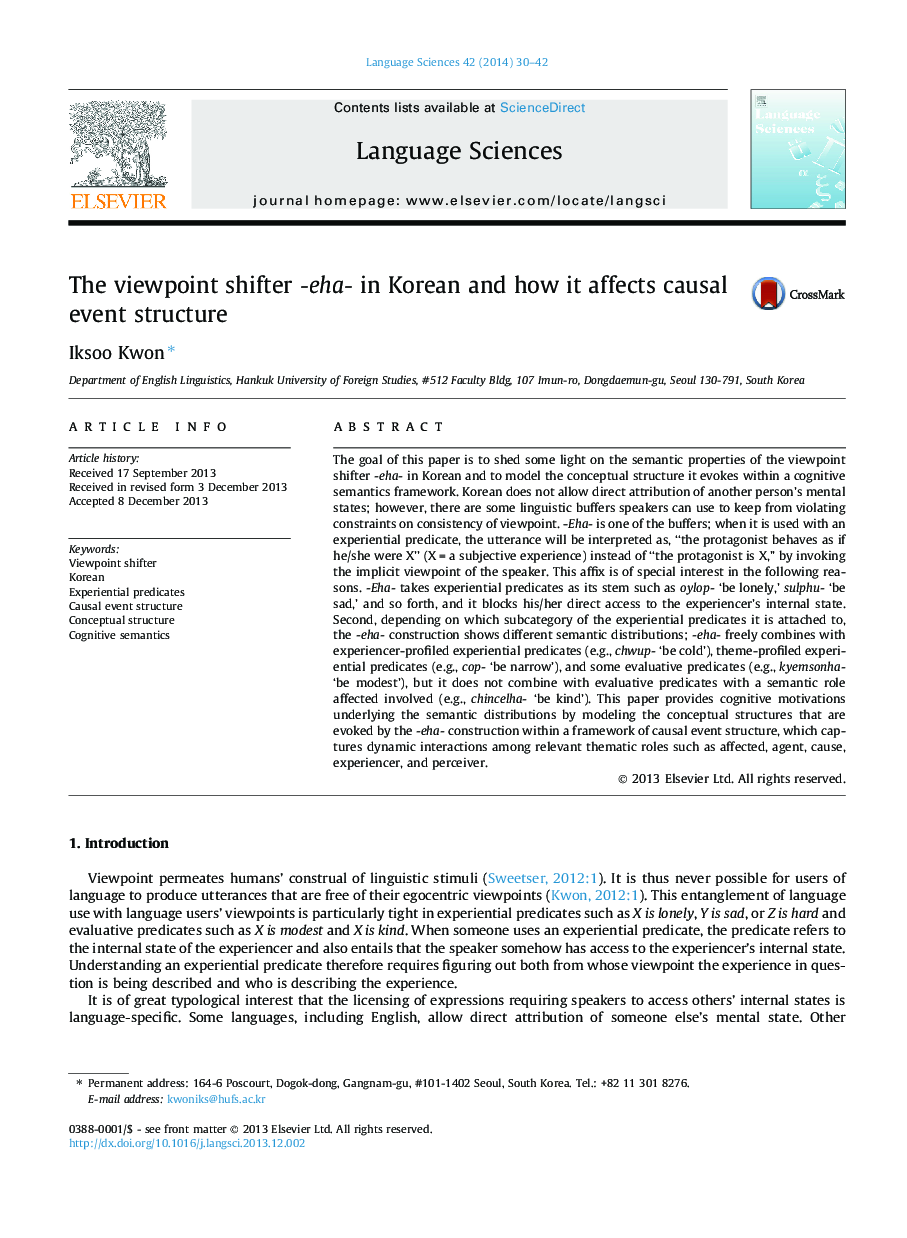| کد مقاله | کد نشریه | سال انتشار | مقاله انگلیسی | نسخه تمام متن |
|---|---|---|---|---|
| 1103108 | 1488158 | 2014 | 13 صفحه PDF | دانلود رایگان |
عنوان انگلیسی مقاله ISI
The viewpoint shifter -eha- in Korean and how it affects causal event structure
دانلود مقاله + سفارش ترجمه
دانلود مقاله ISI انگلیسی
رایگان برای ایرانیان
موضوعات مرتبط
علوم انسانی و اجتماعی
علوم انسانی و هنر
زبان و زبان شناسی
پیش نمایش صفحه اول مقاله

چکیده انگلیسی
The goal of this paper is to shed some light on the semantic properties of the viewpoint shifter -eha- in Korean and to model the conceptual structure it evokes within a cognitive semantics framework. Korean does not allow direct attribution of another person's mental states; however, there are some linguistic buffers speakers can use to keep from violating constraints on consistency of viewpoint. -Eha- is one of the buffers; when it is used with an experiential predicate, the utterance will be interpreted as, “the protagonist behaves as if he/she were X” (XÂ =Â a subjective experience) instead of “the protagonist is X,” by invoking the implicit viewpoint of the speaker. This affix is of special interest in the following reasons. -Eha- takes experiential predicates as its stem such as oylop- 'be lonely,' sulphu- 'be sad,' and so forth, and it blocks his/her direct access to the experiencer's internal state. Second, depending on which subcategory of the experiential predicates it is attached to, the -eha- construction shows different semantic distributions; -eha- freely combines with experiencer-profiled experiential predicates (e.g., chwup- 'be cold'), theme-profiled experiential predicates (e.g., cop- 'be narrow'), and some evaluative predicates (e.g., kyemsonha- 'be modest'), but it does not combine with evaluative predicates with a semantic role affected involved (e.g., chincelha- 'be kind'). This paper provides cognitive motivations underlying the semantic distributions by modeling the conceptual structures that are evoked by the -eha- construction within a framework of causal event structure, which captures dynamic interactions among relevant thematic roles such as affected, agent, cause, experiencer, and perceiver.
ناشر
Database: Elsevier - ScienceDirect (ساینس دایرکت)
Journal: Language Sciences - Volume 42, March 2014, Pages 30-42
Journal: Language Sciences - Volume 42, March 2014, Pages 30-42
نویسندگان
Iksoo Kwon,